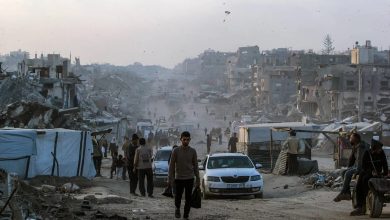“Pepsi Is Haram!”—Bangladeshi Worker’s Outcry Sparks Viral Boycott Message for Gaza
A humble worker’s emotional protest against buying Israeli-linked products resonates across the Arab world, reigniting calls for economic resistance amid Gaza's humanitarian crisis.
Watan-In a heartfelt and unexpected moment, a humble Bangladeshi worker stole the spotlight through a short, spontaneous video clip, shouting at an Arab youth: “Pepsi is haram… are you crazy? Palestinians are dying every day!” This scene was more than just a fleeting moment—it was a moral shock that reignited discussions around popular stances on the economic boycott of products supporting the Israeli occupation.
The video, which spread like wildfire across various social media platforms, documented the incident in a Gulf country. The Bangladeshi worker was seen stopping a shopper from buying a Pepsi, at a time when the people of Gaza are enduring daily massacres and being deprived of life’s most basic needs.
What added to the symbolism of the moment was that the video was originally filmed to mock the worker. But the tables turned, and he quickly became an icon. His words sparked widespread admiration and respect, contrasting with the disapproval many felt toward the behavior of the Arab youths in the video, who were seen laughing, ignoring the noble and principled message behind the worker’s words.

Boycott Is Resistance: A Worker’s Cry Echoes Louder Than Silence
The public response was firm. Many considered that the Bangladeshi worker, in his broken Arabic, expressed what countless Arab intellectuals and activists fail to say. As boycott campaigns grow around the world against major companies like Pepsi, Coca-Cola, KFC, and Starbucks for their direct or indirect support of the occupation, the continued rush to consume such products in some Arab countries remains a source of anger and bewilderment.
Even more painful is that boycott movements are growing stronger in non-Arab countries, while parts of the Arab public remain immersed in unconscious consumption—often under the protection of governments actively engaged in normalization projects.
The message was clear: Don’t have money or a platform? Boycott. Don’t have weapons? Resist. And don’t be complicit in the extermination of your brothers—through your silence or your wallet.






